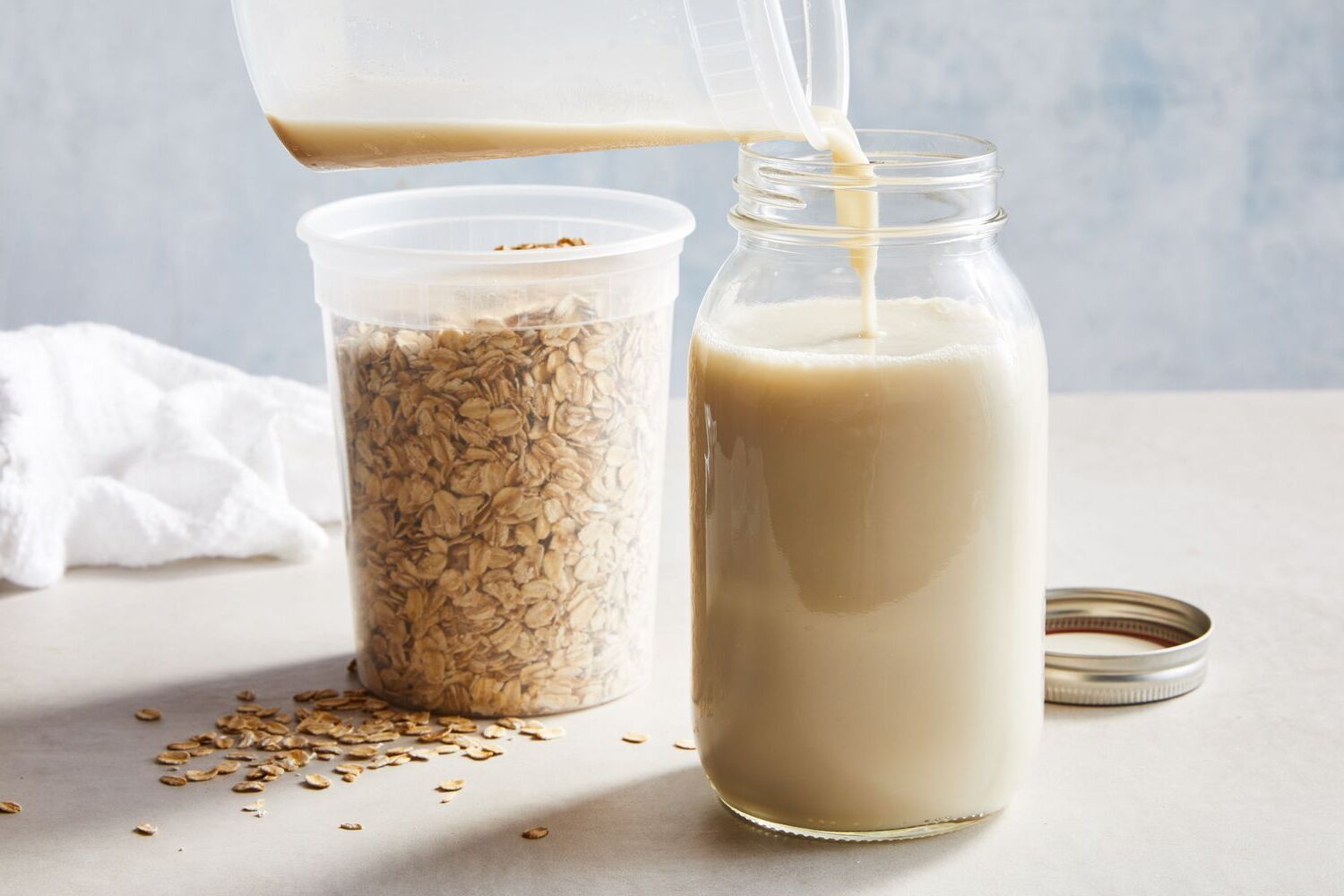
Ever wondered why oat milk has taken coffee shops and supermarkets by storm? Oat milk isn't just another trend; it's a creamy, delicious alternative to dairy that's packed with benefits. But what's the real scoop behind this plant-based sensation? From its humble beginnings to its environmental impact, oat milk has a story worth telling. In this post, we'll spill the beans on 15 fascinating facts about oat milk that might just surprise you. Whether you're a die-hard fan or a curious newcomer, these insights will give you a whole new perspective on your favorite non-dairy drink. Ready to get the lowdown on oat milk? Let's dive in!
Key Takeaways:
- Oat milk is a creamy, eco-friendly alternative to dairy milk, rich in vitamins and minerals. It's a great choice for those with allergies or looking for a sustainable option.
- Oat milk's popularity is soaring due to its sustainability, versatility in cooking, and ability to create frothy lattes. It's a delicious, planet-friendly choice for all.
What is Oat Milk?
Oat milk is a plant-based milk alternative made from whole oat grains. By blending oats with water and then straining them, a creamy liquid emerges, known as oat milk. This dairy-free option has gained popularity for its environmental benefits and nutritional profile.
- Oat milk production requires less water than almond milk, making it a more eco-friendly choice.
Nutritional Benefits of Oat Milk
Oat milk is not only good for the planet but also packs a punch in terms of health benefits.
- It's naturally free of lactose, nuts, and soy, making it an excellent option for those with allergies or intolerances.
- Rich in vitamins and minerals, oat milk often comes fortified with vitamin B12, vitamin D, and calcium.
- Contains beta-glucans, a type of soluble fiber that can help lower bad cholesterol levels.
How Oat Milk Compares to Other Milk Alternatives
When choosing a milk alternative, it's helpful to know how oat milk stacks up against others like almond, soy, or cow's milk.
- Oat milk typically has more calories and carbs than almond milk but less protein than soy or cow's milk.
- Its creamy texture makes it a preferred choice for coffee and tea, closely mimicking the mouthfeel of traditional dairy milk.
Environmental Impact of Oat Milk
The production of oat milk has a significantly lower environmental footprint compared to dairy milk.
- Growing oats requires less land and water than dairy farming, reducing the strain on natural resources.
- Oat milk production results in lower greenhouse gas emissions, contributing less to climate change.
Choosing the Right Oat Milk
With many brands on the market, selecting the best oat milk can be overwhelming.
- Look for unsweetened varieties to avoid added sugars.
- Choosing fortified oat milk ensures you're getting added nutritional benefits like vitamins and minerals.
Oat Milk in Cooking and Baking
Oat milk is versatile, making it a great addition to various recipes.
- It can be used as a one-to-one substitute for cow's milk in most recipes.
- Its natural sweetness enhances the flavor of baked goods, smoothies, and breakfast cereals.
The Rise of Oat Milk Popularity
Oat milk has seen a surge in popularity, becoming a staple in coffee shops and supermarkets alike.
-
Its growth is driven by increasing consumer demand for sustainable and allergy-friendly food options.
-
Baristas favor oat milk for its ability to froth and create artful lattes similar to dairy milk.
-
Social media has played a significant role in popularizing oat milk, with influencers and health enthusiasts promoting its benefits.
Oat milk's journey from a niche alternative to a mainstream favorite highlights a shift towards more sustainable and inclusive food choices. Whether for its environmental benefits, health advantages, or creamy texture, oat milk has carved out a significant place in the plant-based movement.
A Final Scoop on Oat Milk
Oat milk's journey from humble beginnings to supermarket shelves worldwide is nothing short of remarkable. This dairy alternative has won hearts for its creamy texture, environmental benefits, and versatility. Whether you're a coffee aficionado looking to add a frothy top to your morning brew, a baker seeking a dairy substitute, or someone exploring plant-based diets, oat milk offers a sustainable and tasty option. Its low impact on the planet, coupled with nutritional benefits, makes it a smart choice for the health-conscious and eco-aware alike. So, next time you reach for a carton of oat milk, remember it's more than just a drink—it's a small step towards a more sustainable lifestyle. Cheers to making choices that are good for us and the planet!
Frequently Asked Questions
Was this page helpful?
Our commitment to delivering trustworthy and engaging content is at the heart of what we do. Each fact on our site is contributed by real users like you, bringing a wealth of diverse insights and information. To ensure the highest standards of accuracy and reliability, our dedicated editors meticulously review each submission. This process guarantees that the facts we share are not only fascinating but also credible. Trust in our commitment to quality and authenticity as you explore and learn with us.


